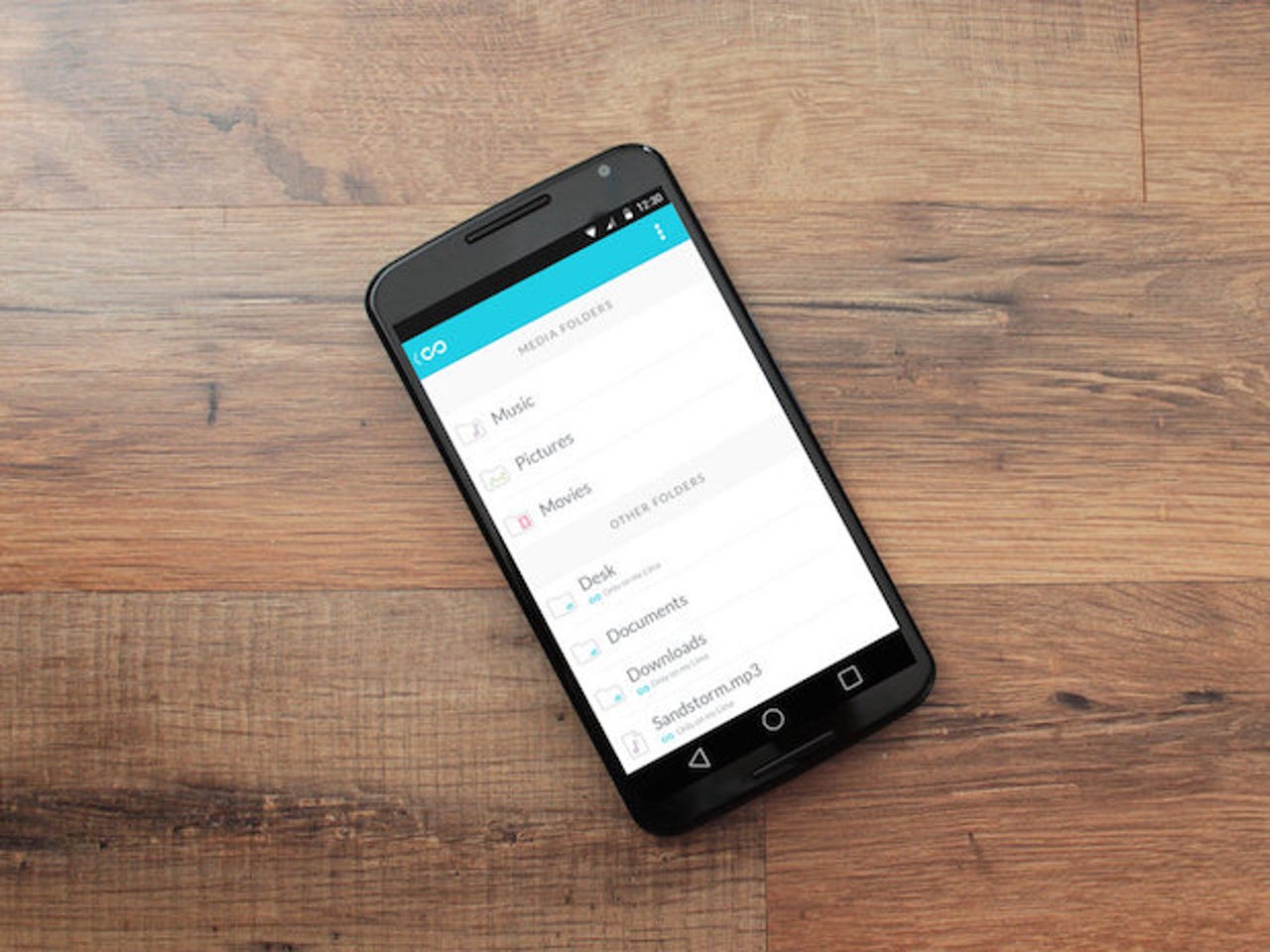Meet Lima, storage that means you never have to worry about privacy, space, or back-ups again


There is no doubt that the French tech scene raised eyebrows at this year's CES 2015 after clocking up an impressive five Innovation Awards. But Lima - a product that aims to "reinvent how devices work" by making all content from all connected devices accessible no matter where the user is - was an Innovation Award winner in both the 'computer accessories' and 'software and mobile apps' categories. This represents a significant nod to the dual nature of Lima's technology as both a hardware and software product.
A step up from the cloud
"Lima is a product that radically changes how our devices work, by attaching the content of a user to himself, rather than to his devices," Paris-based Sévérin Marcombes, who founded Lima along with Gawen Arab, said.
The product has been compared to Dropbox and other cloud-based storage offerings, but the team is quick to point out the differences. Dropbox can be compared to a virtual USB key, which is accessible via the internet, into which you manually copy your files; it's also a service that has to be rented on a monthly basis, meaning that users do not own the storage either.
Marcombes says that Lima is a step beyond the cloud, as it stores files locally like a private datacentre. "It's not one shared folder between your devices; it's their entire storage," he explains. "This is a complete change of paradigm that puts the user at the very centre. The magic of Lima relies on the fact that its software changes the way your devices store your files to make them all use the same reference storage without changing your habits."
Because Lima is connected to a router, the user can access files on Lima from wherever they are in the world, the same as from the cloud. Users can access all their content from any device and find files organised in the same way on each. The service renders the size of a device's memory unimportant as all content can be accessed from any connected device, whether smartphone or desktop PC.
The system also allows users to send large files instantly and to collaborate with colleagues on the same files without worrying about size limits. Plus it ensures users that their data is always being backed up - Lima keeps older versions of each file, which are, according to the team, "two clicks away".
Of course, if a user isn't connected to the internet then it's only possible to access files that are stored locally on a device. But files can be selected for offline use in the same way that Spotify Premium users can select music to play offline when an internet connection is not available. The Lima application, however, makes it easier by making the most-used files available for offline viewing automatically.
How Lima works
Lima works by pairing a hardware adapter and software that works across desktop and mobile devices, enabling them to show the same data regardless of where the files were originally created or stored. To install Lima, the user needs to plug the Lima device into both their router and an external hard drive (anything up to 8TB is supported). Then, once the Lima app is installed on all devices, the system is ready to be used. Lima currently supports Android and iOS smartphones, and Windows, Linux, and Mac OS X machines. Those with Windows Phone and Chrome OS devices can use the Lima Web app.
After this, Lima gathers all the files from the various devices and moves them all into a shared storage system on the local hard drive. From that moment on, devices use this common storage area instead of their own and act as "a team" to share memory, creating a system that's both decentralised and private.
So how did the idea for Lima come about? Marcombes says it originally came when he was looking for a way to have all his music on all his devices. "I realised that it wasn't actually just my music," he says, "I didn't understand why I couldn't have exactly the same content on all the devices I owned - it seemed natural yet no solution was on the market."
He and Arab then "locked themselves in a basement" and worked on Lima's prototype for two years. It was then that the product launched on Kickstarter with the goal of raising $69,000 to manufacture the first 1,000 devices. They reached their goal in under 12 hours and 13,000 backers later ended up raising $1.2m. On 12 January this year, they shipped devices to their first 100 beta testers. The product is now available on pre-order for $99 with delivery planned for this spring.
"As a result of the campaign we were able to gather a team of 20 people and build a far more robust version of Lima right away," says Marcombes. The team also received an additional investment of $2.5m from Partech Ventures - an American-European fund specialising in online and IT companies - to build up its engineering, marketing, sales, and distribution strategies across the US, Europe, and Asia.Lima, is one of the most ambitious products we've seen in the last decade", said Philippe Collombel, general partner at Partech Ventures. "The team has an innovative approach to the explosive issue of personal data and has the potential to rebuild a 20-year-old file storage process. We believe Lima will solve the siloed data issue so prevalent around the globe."
Security and speed
Time and money are also issues which Lima tackles. Uploading files to the cloud - depending on your connection - can take time. "If you're looking to upload 2TB, think a year," says Marcombes. "This isn't the case with Lima, where the initial setup is done on your home local network, which, on average, is 60 times faster than your upload connection. All your devices communicate directly in peer-to-peer, which is much faster than constantly having to go through a server."
At a time when new surveillance laws are being introduced in France, and distrust of cloud-based services is becoming a growing concern, Lima's local, private storage option gives consumers and business owners another alternative for their file storage.
"With Lima, all of your files are stored at home, and not on the servers of a private company abroad," says Marcombes, adding that content can also be replicated over several Limas and files backed up in multiple locations, if needed.
"Nobody in the world has physical access to the data but yourself. All communications are fully encrypted using the TLS protocol, which is similar to the security used by a bank."
Read more on this story